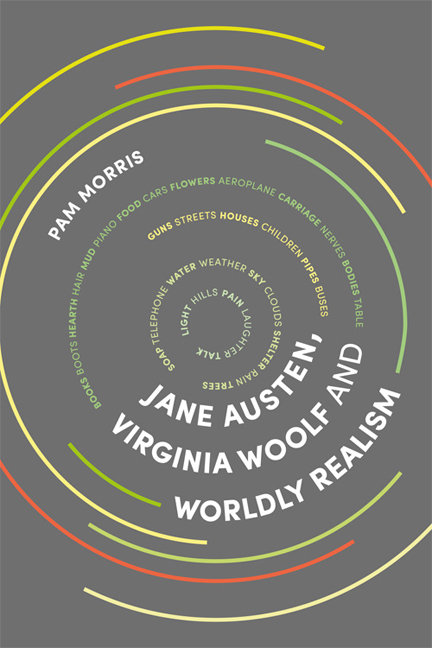Conclusion
Summary
In so many ways, there has been a prising away of life from place, an abstraction of experience into different kinds of touchlessness. We experience, as no historical period has before, disembodiment and dematerialisation […] We have in many ways forgotten what the world feels like […] We have come increasingly to forget that our minds are shaped by the bodily experience of being in the world – its spaces, textures, sounds, smells and habits. (Robert Macfarlane, The Wild Places, p. 203)
What Robert Macfarlane describes here can be thought of as a redistribution of the perceptible, a turning away from the tangible experience of physical existence. Macfarlane's concern is the very modern one of the threat posed by this distancing and abstraction of our experience of the world to its ecological survival. Much earlier, at the turn of the eighteenth century, Jane Austen is also writing in reaction to this same redistributive formation, albeit still in process of emergence and consolidation. In Sense and Sensibility, the term ‘society’ retains for her the immediacy of personal interaction and shared feelings, even while its meaning is in process of change as part of the shift towards abstraction and aggregation as a way of knowing the world.
Struggles of representation as to what is noteworthy, what is above or below the horizon of visibility, are equally aesthetic and political. I have argued that both Austen and Woolf come to maturity as writers in periods of radically contested values in the eras respectively of the French Revolution and the First World War. In addition, their materialist understanding of reality and the writing practices they fashion from that understanding draw upon a tradition they share of British Enlightenment scepticism. The thinking of David Hume, Adam Smith and David Hartley substantiated a position of dissent from what became, increasingly, a consensual aesthetic and political regime, an ideology sustaining the hierarchical ordering of the mental above the material. For both Austen and Woolf what is at stake in this disembodiment of experience is the pushing out of sight of our shared existence as creaturely beings, beings subject to the same physical needs and vulnerabilities. It is recognition of this commonality that underlies the immediacy of Mrs Jenkins's response, in Sense and Sensibility, to threat of hardship, ‘I must see what I can give them’ (p. 241).
- Type
- Chapter
- Information
- Jane Austen, Virginia Woolf and Worldly Realism , pp. 198 - 202Publisher: Edinburgh University PressPrint publication year: 2017

